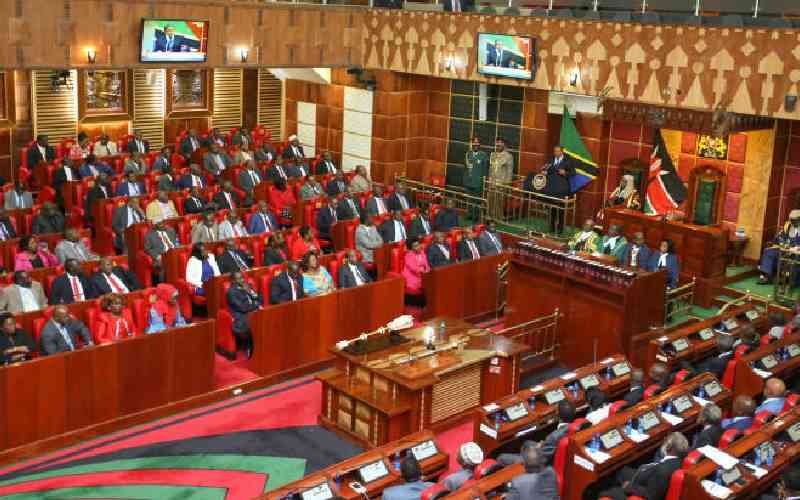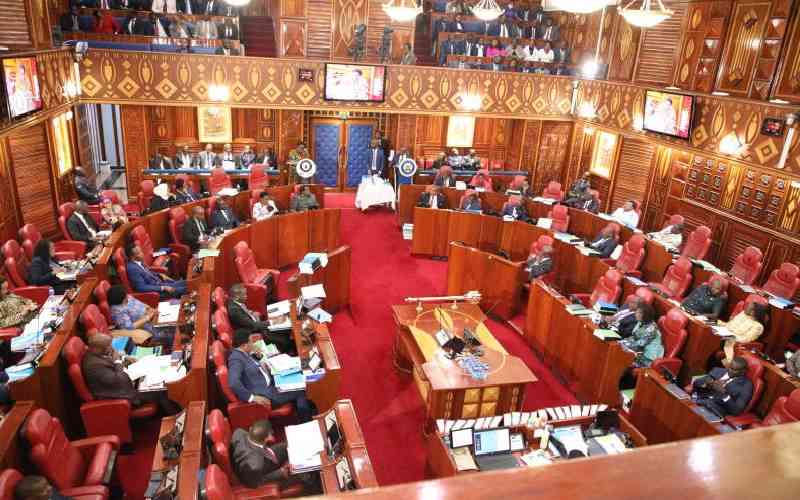-Editorial
Kenyans are hoping the county governments will deliver, this year, the level and quality of services they envisaged when they voted for the new Constitution that gave birth to devolution. To describe last year as a disappointment would be an understatement.
Instead of getting down to business, senators and county governors mounted a spirited campaign calling for constitutional changes that would increase the amount of money allocated to them long before they figured out what they needed to finance the functions devolved from the Government.
Not surprisingly, the campaign failed to resonate at the grass roots, especially after there was mounting evidence that many counties had their priorities all wrong.
Although many of the counties revised their budgets to conform to regulations on use of public funds, few are likely to have completed the financial analysis required to show the exact costs of delivering the devolved services. Indeed, there is reason to believe that even fewer authorities have received their full entitlement of funds.
This explains why reports that governors are set to continue pushing for a referendum to increase allocation of revenue from the National Treasury will elicit mixed reactions. They are likely to excite only those Kenyans whose interests are best served when the country is kept on election mode.
For most, however, the reports mean governors and their allies in the Senate will squander yet another year in debates that create more heat than light. Surely they are aware that Kenyans are fed up with politics-as-usual. The strident, but sterile, public debate raging about recent parastatal appointments should be a wake-up call.
At a time when parents with school-going children a grappling with higher fees and increased costs of books, uniforms and other educational materials, the national political leaders – especially Members of Parliament – would be doing a better job were they engaged in debates on how these challenges could be tackled.
After all, they cannot escape responsibility for the higher costs considering the cavalier manner in which they not only raised their salaries – setting the stage for all public servants to demand similar treatment – but also passed the new tax code slapping Value Added Tax on essential items that were previously exempt.
Sadly, public finance analysts’ warnings that traders would cascade the new taxes downwards, resulting in higher educational costs, were ignored. Now the chickens are coming home to roost. The result is likely to be a snuffing of dreams for an increasing number of qualified students who cannot afford to join secondary school or continue with their education unless they can find a donor.
Kenyans’ hopes are that their elected leaders will set in motion programmes to transform their lives by reducing the cost of living, creating well-paying jobs and stemming the tide of poverty.
Until then, everything else should wait.
 The Standard Group Plc is a
multi-media organization with investments in media platforms spanning newspaper
print operations, television, radio broadcasting, digital and online services. The
Standard Group is recognized as a leading multi-media house in Kenya with a key
influence in matters of national and international interest.
The Standard Group Plc is a
multi-media organization with investments in media platforms spanning newspaper
print operations, television, radio broadcasting, digital and online services. The
Standard Group is recognized as a leading multi-media house in Kenya with a key
influence in matters of national and international interest.
 The Standard Group Plc is a
multi-media organization with investments in media platforms spanning newspaper
print operations, television, radio broadcasting, digital and online services. The
Standard Group is recognized as a leading multi-media house in Kenya with a key
influence in matters of national and international interest.
The Standard Group Plc is a
multi-media organization with investments in media platforms spanning newspaper
print operations, television, radio broadcasting, digital and online services. The
Standard Group is recognized as a leading multi-media house in Kenya with a key
influence in matters of national and international interest.









